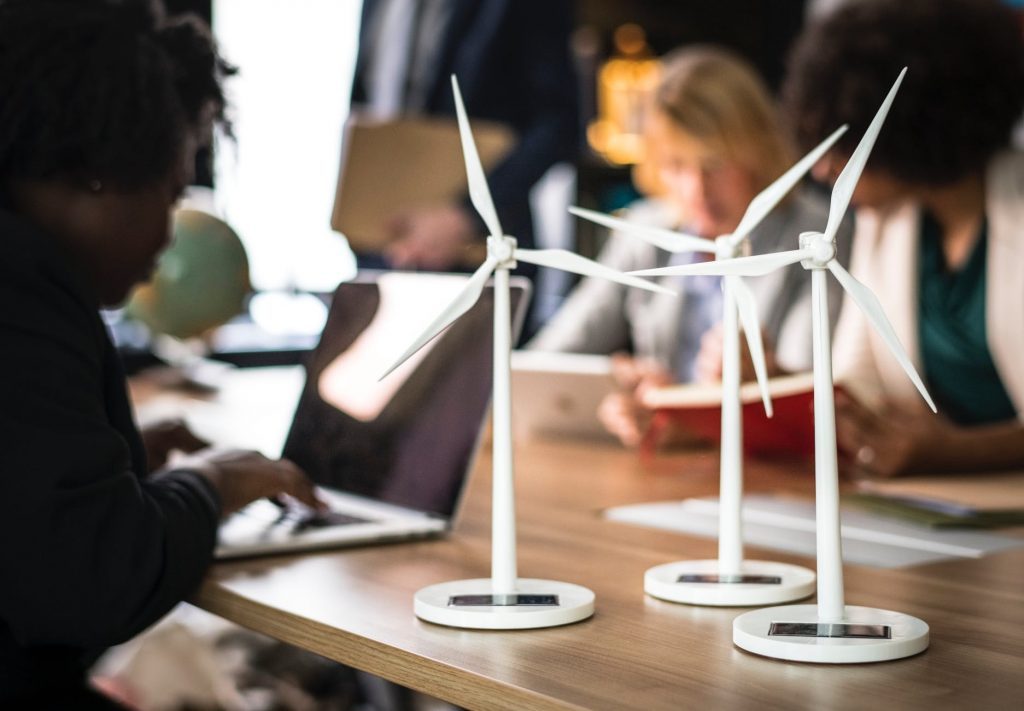With growing amounts of waste end up in landfill at home and overseas, you’d be forgiven for believing that technology isn’t necessarily a sustainable businessenterprise. The international population is projected to create over 50 million tonnes of e-waste this season, causing a substantial strain on Earth.
But, modern technologies are also being designed to decrease our ecological impact, particularly at work. Some distinct office gadgets and gizmos have been employed by firms around the world, using a wide selection of advantages given by all of them. Listed below are a couple of the methods that office technology can help your office become more sustainable and environmentally friendly.
Paper Usage:The mass movement of papers and documents from the filing cabinet to the Cloud usually means that much less paper consumed and wasted, which is also supported by the usage of email and instant messaging instead of sending letters. Meanwhile, smart printers may stop the unnecessary printing of multiple files of the same document, cutting down on paper waste much further. Intelligent printers are also energy efficient and use less ink and toner, saving on natural and monetary resources. Other technology such as biometric fingerprint attendance systemsrecord staff attendance on a system, rather than having to fill in paperwork and use wasteful plastic key cards. Time and attendance software can be implementedfor staff where they can access time sheets and leave requests on a mobile application, instead of paperwork.
Air quality:The usage of complex sensors can monitor airborne molecular contamination in enclosed spaces, thus detecting when a gas flow or unhealthy concentration of pollutants is within the workplace atmosphere. This cannot only up morale and productivity but provide exponential health advantages, also. Business coaches and managers advocatefor higher qualities or air in the office, as a way of increasing energy and concentration amongst employees.
Air conditioning and heating systems:Up to 10 per cent of global electricity consumption is down to heating or cooling spaces. A smart-enabled tracking system may make certain air is simply conditioned when absolutely required, and may even redistribute atmosphere to some other place in the building to conserve energy. Smart thermostats and air conditioners can sense when there are people in the room as well as monitor the outside temperature and regulate accordingly. Modern air conditioning systems are far more environmentally friendly than old portable systems which guzzle electricity. In the office, upgrading to an advanced system is a great way to keep staff comfortable and reduce power use.
Power saving:A smart workplace can switch on the coffee machine once the very first worker arrives in the morning and switch off the lights after the previous one has left through the night. It may cut power supply to appliances and office equipment when not being used and recharge machines to be energy-efficient. Smart power boards and sensors can detect when devices are not in use and turn off power at the source. There are also computer applications that remind users to turn down monitor brightness and close programs they are not using to minimise energy usage.
Maintenance: Predictive maintenance applications can detect when a machine is starting to malfunction, and therefore alert you that it takes focus and saving time, money and other tools in a subsequent date for breakdown, downtime and repair. Repair and maintenance also decrease the need to replace appliances with new ones and creating unnecessary waste.
Embrace Renewable Energy:many offices are pledging to ensure that they’re energy sources have a minimum renewable energy percentage and have goals to go utterly renewable in the future. Advances in technology in solar, wind and hydropower make them more affordable and accessible for businesses.
Stock: Having all your stock itemised from the Cloud usually means that a pc can keep tabs when supplies start to dwindle and order more, which means that you’re never caught short or left in the lurch. In the same way, the interconnected nature of the Internet of Things (IoT) signifies your company can optimise its arrangement to react to changing markets, which means that you shouldn’t have excess, either. Ensuring the appropriate amount of stock means that none is wasted and there are no shortages for customers.
All these motives can come together to provide fantastic value for your sustainability efforts, meaning far from being a drain on the world, office technology can function to its advantage. All businesses should realise the importance of investmentin sustainable technology, and it is only a matter of implementing the tech for your advantages — then implementing it on a company-wide scale before reaping the gains.
